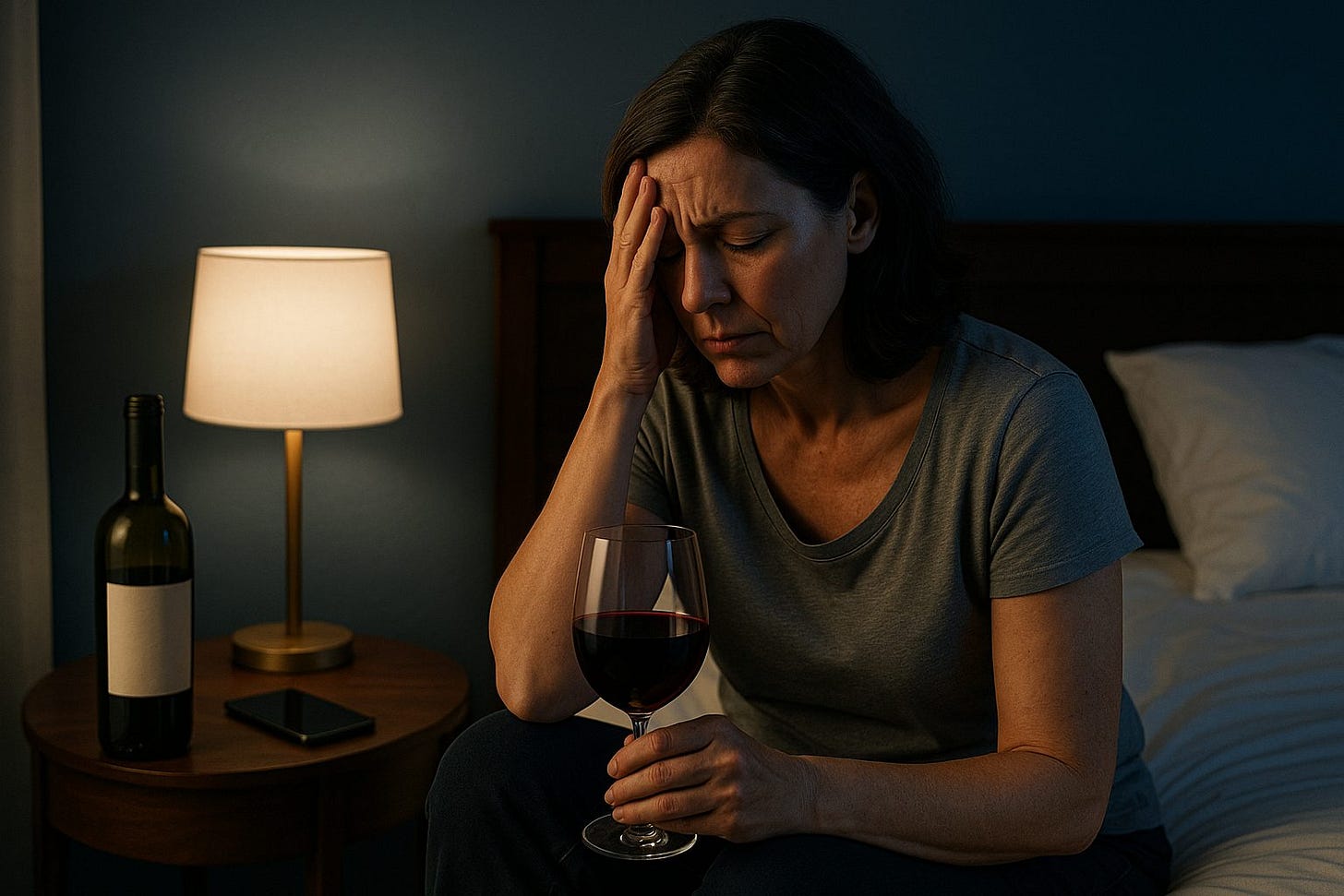6 Things You Should Never Do Before Bed If You Want to Age Gracefully
Before You Turn Off the Light—Six Silent Sleep-Ruiners That Age You Faster
You’ve heard it a million times: sleep is the “beauty rest,” the secret sauce of aging well. But the better secret? What you don’t do before bed matters just as much as what you do. In this article, I take you behind the scenes—into the microscopic, hormonal, oxidative details—to expose six habits that quietly accelerate aging, wrinkle your brain, and rob your cells of their repair time.
These aren’t generic “don’t scroll on your phone” warnings (though those count)—they’re the damage-dealers hiding in your evening routine. Trust me: learning what not to do before bed might be the most age-defying habit you ever adopt. 😏
1. Don’t Drink Alcohol (Especially Late Evening)
You might think a nightcap helps you drift off. But alcohol is a betrayer. Yes, it often knocks you out faster—but then your sleep gets shredded. Your body’s processing of alcohol leads to sleep fragmentation, reductions in REM and deep sleep, and cortisol rebounds later in the night. That’s bad. Very bad—for your memory, mood, metabolism, and hormones.
And here’s a jolt: disrupted sleep is tied to oxidative stress and accelerated aging at the cellular level. A 2025 review on sleep and redox metabolism shows that poor sleep impairs your ability to neutralize reactive oxygen species (ROS), which pile up and damage DNA, proteins, and mitochondria over time.
So skip the wine late—even if it feels relaxing. If you want one drink, have it earlier, and then let your body unwind on its own.
2. Don’t Eat Heavy or Spicy Meals Close to Bed
Your digestive machinery doesn’t clock out just because your eyes are closing. A heavy meal or spice-laden dinner triggers acid reflux, blood sugar spikes, and metabolic chaos right when your body should be entering restorative mode.
When the system works overtime digesting, it can throw off your circadian rhythm. And that, in turn, shifts your melatonin window (the optimal sleep hormone window) and degrades your skin repair cycle. The RISE app team, for example, emphasizes syncing meals with your body clock and avoiding late eating to keep your anti-aging rhythm intact.
A light, balanced snack—if you must eat—2–3 hours before bed is safer.
3. Don’t Scroll Screens, Especially Blue-Light Devices
Ah, the glowing blue devil. Smartphones, tablets, laptops—all emit blue wavelength light that suppresses melatonin, your body’s lullaby hormone. Turn those off at least an hour before bed.
Beyond that, the mental stimulation—doomscrolling, work email, social media—amps your cortisol and “awake” circuits. That undermines the delicate cascade your body uses to shift into repair mode. According to modern sleep hygiene principles, limiting screen time before bed is one of the top evidence-based moves to improve sleep quality.
So, dim lights. Put devices to sleep. Let you go to sleep.
4. Don’t Push Intense Exercise Right Before Bed
Ironically, we worship fitness. But your timing matters. Vigorous activity elevates heart rate, temperature, adrenaline, and cortisol. These make it harder for your system to transition into the parasympathetic (rest-and-repair) mode it needs at night.
If your only window to work out is late, opt for gentle yoga, stretching, or a calm walk. Save the heavy lifts, sprints, HIIT sessions for daytime or early evening.
5. Don’t Ignore a Consistent Sleep Schedule
Your body hates unpredictability. Your circadian rhythm thrives on consistency. Flipping bedtimes—wandering off at 1 a.m. one night, 10 p.m. the next—jacks up your internal clock, confuses your hormones, and accelerates “biological aging.”
A recent study on older adults reveals that variability in sleep efficiency (how well you sleep relative to your time in bed) correlates with worse cognitive performance. In other words: irregular sleep = brain fog + aging.
Fix it: wind down at the same time every night. Wake at the same time. Even on weekends. Make your body rhythm your ally—not your foe.
6. Don’t Skip Skincare Cleanse / Active Night Ingredients (When Appropriate)
Dirty skin is not sexy. Leaving makeup, sunscreen, pollutants, or grime on overnight invites oxidative damage, microbial stress, and increased inflammation. That compromises your skin’s ability to regenerate during deep sleep.
Better yet: a smart nighttime routine—non-irritating cleanser, antioxidant serum, perhaps retinoids (if suited to your skin)—can support collagen remodeling and hydration while you sleep. Dermatologists often call the night the “active hours” for skin repair.
Just beware of overdoing it. Too many strong actives at once? That’s irritation. And chronic irritation is a fast track to premature aging.
Also read: 5 Science-Backed Sleep Tricks To Improve Cellular Repair Overnight
Why These “Don’ts” Matter: The Big Picture
Cellular repair demands peace. Your growth hormones, DNA repair enzymes, and detox pathways run on a quiet, dark, stable schedule. Disturbances creak open the door to oxidative damage.
Sleep is your fountain of youth (or not). Disrupted sleep speeds up markers of aging—including telomere shortening and inflammation.
Your brain, especially, is nervous about sloppy rest. Researchers found that good sleep habits correlate with “younger” brain scans—sometimes by as much as eight years.
So yes—don’t do these six before bed. Protect your night, preserve your glow, and let every evening be a quiet pact with your future self.


